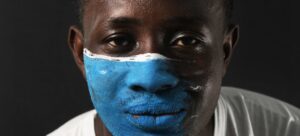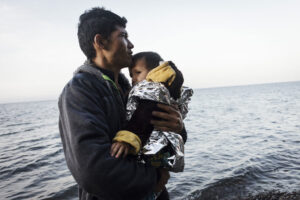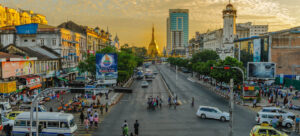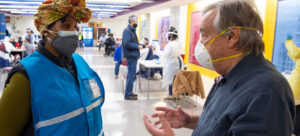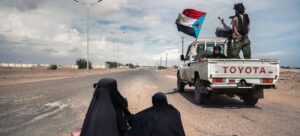By November, more than 84 million people had been forced from their homes, according to UNHCR data. This figure is an increase from 2020 and 2019, both of which were record-breaking years in terms of the numbers forcibly displaced around the world.
‘A paradox not seen before in human history’
This rise was coupled with a drop in global mobility overall due to stricter travel rules, prompting the Director General of the UN migration agency (IOM), António Vitorino, to declare that the world was “witnessing a paradox not seen before in human history.”
“While billions of people have been effectively grounded by COVID-19, tens of millions of others have been displaced within their own countries,” he said, at the launch of the agency’s latest World Migration Report.
The migration agency also warned that refugees, and migrants who move out of necessity, have been particularly hard-hit by COVID-related travel restrictions, and millions have found themselves stranded away from home, and in danger.

IOM/Monica Chiriac
At least 30,000 migrants are stranded at borders in West Africa according to the UN.
Fleeing violence and armed attacks
Conflict is one of the main reasons that people leave their homes in search of a better life, and there was, sadly, a great deal of violence to escape throughout the year, particularly in Africa, where huge numbers were displaced, either within their own borders, or to neighbouring States.
Many African countries were affected: in the Central African Republic, presidential elections were followed by fighting; the Darfur region of Sudan was hit by inter-communal violence; atrocities were committed by armed groups in eastern Democratic Republic of the Congo; and in Burkina Faso there was a rise in violent jihadist attacks. Several hundred thousand people were displaced as a result.
The rising conflict in Ethiopia’s Tigray region in 2021 caused widespread concern and massive displacement, with UNHCR reporting desperate people crossing into Sudan with little more than the clothes on their backs.
Meanwhile, Eritreans who had come to Ethiopia, escaping violence in their own country, soon found themselves caught up in the Tigray fighting: in March, satellite images showed that camps housing thousands of Eritrean refugees had been burned to the ground.
UN humanitarian workers weren’t able to get access to the refugees until August, when they delivered urgently needed aid supplies.

© UNHCR/Tony Aseh
Displaced people wait in line at a distribution site in Kabul, Afghanistan.
Millions displaced in Afghanistan
Even before the Taliban took control of Afghanistan in August, the worsening security situation in the country meant that more than a quarter of a million people had been forced from their homes by July, bringing the total number of internally displaced persons to 3.5 million.
After the takeover – the speed of which took many observers by surprise – the UN committed to staying in the country to help those affected by the deepening, ongoing, humanitarian crisis.
The IOM chief, António Vitorino, warned in November that ongoing conflict, grinding poverty and climate-related emergencies, have pushed the country to the brink of collapse.

UNICEF/UN0304588/Arcos
Yulis Rivas draws a picture of her parents in the Friendly Space in Cucuta, Colombia, where UNICEF provides learning activities for migrant children and parents from Venezuela.
Unprecedented, forced migration in Central America
The amount of displacement in Mexico and Central America this year was described as “unprecedented” by UNHCR. Nearly one million people in the region left their homes due to a lack of opportunities, gangs, organized crime, the ravages of the COVID-19 pandemic, and climate change.
The incoming US administration signalled that it would adopt a compassionate attitude towards undocumented migrants and refugees entering across the southern border, but public health-related asylum restrictions remained in place, closing off ports of entry, and the US expelled hundreds of thousands of people to Mexico and other countries of origin.
Mexico itself has become a country of destination, as well as a nation of transit to the US, with around 100,000 asylum claims in 2021, a new record. In December, a horrific tragedy brought home the need for controlled, safe migration: when a crowded truck overturned in Chiapas, at least 54 reportedly Central American migrants died and more than 100 were injured – the single deadliest incident for migrants in Mexico since at least 2014, when IOM began documenting deaths.
Further south, Venezuela’s continuing socio-economic collapse was the source of the one of the largest displacement crises in the world. More than six million people have so far left their homes, and the needs of refugees and migrants from the country have been worsened by the COVID-19 pandemic.
In December, UNHCR and IOM launched a joint appeal for $1.79 billion, to fund a regional plan to support the increasing needs of the refugees and migrants from Venezuela, and their host communities across 17 countries in Latin America and the Caribbean.
See our companion piece, ‘2021 Year in Review: UN support for countries in conflict’, here.

IOM/Hussein Ben Mosa
Since 2014, 166 migrants have been recorded dead or missing in the English Channel
The deadly waters of the Mediterranean
The Mediterranean Sea has, for many years, been a favoured route for migrants and refugees attempting to reach what they regard as a safe haven in Europe. However, the hazardous crossing became even more deadly this year, as European countries stepped up expulsions and pushbacks at land and sea borders.
In the first six months of the year, at least 1,140 died attempting to reach Europe by boat. Hundreds more died in the second half of the year, whilst trying to reach Europe from northern African States or Turkey.
In just one incident in November, at least 27 people drowned in the English Channel, the largest single loss of life in the English Channel ever recorded by the IOM. According to the French authorities, well over 31,000 people attempted the dangerous crossing between France and the UK in 2021, and 7,800 were rescued at sea.

© UNHCR/Mohamed Alalem
UNHCR is providing emergency aid to vulnerable asylum seekers and refugees affected by government security operations in Tripoli, Libya.
Heavy-handed treatment in Libya
Many of those who attempt the crossing left from Libya, whose coast was the scene of fatal shipwrecks, including a January wreck in which 43 people died, and an April disaster which claimed the lives of 130 people, prompting the UN’s migration and refugee agencies to reiterate calls for the reactivation of search and rescue operations in the Mediterranean.
Despite an improved peace and security situation, the country itself continued to pose dangers for refugees and migrants. The UN complained that they faced increasingly heavy-handed treatment from targeted security operations, resulting in at least one death and a steep increase in detentions.
In October, the UN refugee agency declared that the Libyan government must immediately address the dire situation of asylum-seekers and refugees in a humane manner, consistent with international human rights law.

UNHCR Belarus
Migrants stranded in harsh conditions on the Belarus-Poland border.
Belarus border crisis
In September a crisis loomed on the border between Belarus and Poland. The EU reportedly accused Belarus of deliberately assisting migrants to cross the border into Poland illegally – a charge which Belarus denied – in reprisal against sanctions imposed by the bloc on the basis of alleged human rights violations amid huge protests following on from the disputed presidential election of 2020.
A state of emergency took effect in areas of eastern Poland the same month, after thousands of migrants from Iraq, Afghanistan and elsewhere tried to illegally cross into the country from Belarus.
In November, the UN called for an immediate de-escalation, following weeks of rising tension, and TV news footage showing migrants on the border between Belarus and Poland attempting to dodge teargas and make their way through razor wire.
As temperatures dropped, and several deaths were reported amongst the asylum-seekers, refugees and migrants stranded for weeks in increasingly dire conditions, the UN rights office urged both countries to resolve the crisis and respect human rights.

© UNHCR/Xavier Bourgois
Refugees in Minawao, in northeastern Cameroon, plant trees in a region which has been deforested due to climate change and human activity.
The rising importance of the climate crisis
Whilst conflict looks set to continue to be a key driver of voluntary and forced displacement in the coming years, the changing climate is likely to play an increasingly important role.
In fact, UNHCR data shows that, over the last decade, Weather-related crises have triggered more than twice as much displacement as conflict and violence: Since 2010, extreme weather has forced around 21.5 million people a year to move, on average.
And whilst Afghanistan’s conflict has been the focus of much attention, the country’s citizens also have to face numerous natural disasters: the country is one of the most disaster-prone in the world, with nearly all of its 34 provinces hit by at least one disaster in the past three decades.
